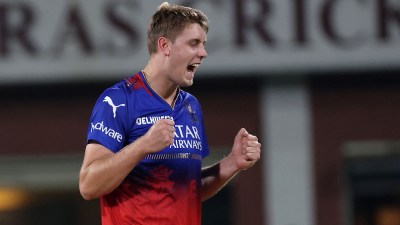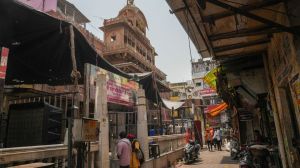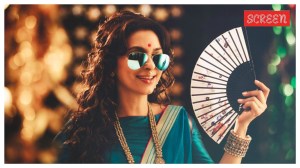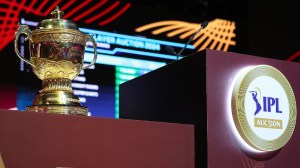Delhi HC protects Anil Kapoor’s personality rights: What they are, how have courts ruled
Any feature easily identified by the public as markers of a celebrity’s personality and are referred loosely as “personality rights.” The idea is that only the owner or creator of these distinct features has the right to derive any commercial benefit from it.
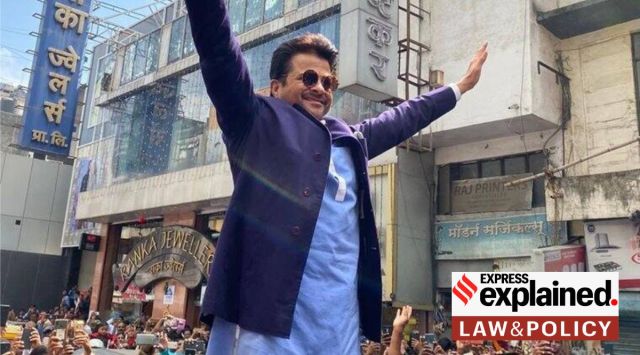 Anil Kapoor's lawyer argued that several defendants had misappropriated Kapoor's name and elements of his persona to earn profits. (Photo: X/@AnilKapoor)
Anil Kapoor's lawyer argued that several defendants had misappropriated Kapoor's name and elements of his persona to earn profits. (Photo: X/@AnilKapoor) Rajinikanth’s name, Amitabh Bachchan’s baritone and now Anil Kapoor’s style. These are some of the personality rights that celebrities are trying to protect. The Delhi High Court this week allowed Kapoor’s pleas for protection of his personality rights from misuse by third parties.
What is a personality right?
The name, voice, signature, images or any other feature easily identified by the public are markers of a celebrity’s personality and are referred loosely as “personality rights.” These could include a pose, a mannerism or any aspect of their personality.
Many celebrities even register some aspects as a trademark to use them commercially. For example, Usain Bolt’s “bolting” or lightning pose is a registered trademark.
The idea is that only the owner or creator of these distinct features has the right to derive any commercial benefit from it. Exclusivity is a big factor in attracting commercial dividends for celebrities. So unauthorised use causes a tangible loss of revenue.
Celebrities can move the Court and seek an injunction when an unauthorised third party uses their personality rights for commercial purposes.
How does the law protect the right?
Personality rights or their protection are not expressly mentioned in a statute in India but are traced to fall under the right to privacy and the right to property. Even as the Delhi High Court and the Madras High Court have passed interim orders, the law is at a nascent stage in India.
Many concepts in intellectual property rights used in protection of trademarks such as passing off, deception can be applied while deciding whether a celebrity deserves to be protected through an injunction.
In the case of Anil Kapoor, the Delhi High Court granted an ex-parte, omnibus injunction restraining 16 entities from using Kapoor’s name, likeness, image, using technological tools like Artificial Intelligence, face morphing and even GIFs for monetary gain or commercial purpose.
An ex-parte injunction is when relief is granted to a party without hearing the other side. An omnibus injunction refers to an injunction granted against any unauthorised use- even those that are not mentioned in the plea.
The injunction acts as a deterrent. However, even when a Court grants an injunction, it is not easy for a celebrity to track all misuse and take action. The celeb has to then issue a takedown order to an online intermediary like Google to have them removed. These legal processes have significant costs involved but could still be beneficial compared to the loss in revenue to the celebrity.
How have Indian Courts decided so far?
Anil Kapoor had moved the Delhi High Court in a civil suit seeking protection of his personality- his name, photographs, manner of speaking, gestures etc. He also claimed protection of his copyright in the dialogue and in the image and other associated works.
Kapoor’s lawyer, intellectual property rights specialist Pravin Anand argued that several defendants had misappropriated Kapoor’s name and elements of his persona to earn profits. For example, the expression “Jhakaas”, Kapoor’s trademark dialogue is a Marathi slang word but is popularised by Kapoor in Hindi films. The lawyer cited news reports stating that the manner in which Kapoor delivers the expression is exclusively associated with him.
Anand distinguished the unauthorised use from “fair use.” A fair use would be for example depiction in news, teaching material or other non-commercial uses or even artistic uses like mimicry or satire which is a copy but not mere reproduction. However, if a third-party uses it to profit from it, it cannot be termed fair use.
Earlier in November 2022, the Delhi High Court had dealt with a similar case involving Amitabh Bachchan. From using variations of his name such as “Big B” to including his “unique style of addressing the computer as’ Computer ji‘ and lock kiya jaye”, the HC injuncted the use of his personality rights.
The HC had relied on a 2012 order which also involved Bachchan. Titan Industries, the Tata company which also owns the jewellery brand Tanishq had moved the HC against a Muzaffarnagar-based jewellery store for using Bachchan’s images from the Tanishq advertisement.
In 2015, the Madras High Court, in a similar case involving actor Rajnikanth had observed that “personality right vests on those persons, who have attained the status of celebrity”. The court’s observation came in the actor’s lawsuit against the producers of the movie “Main hoon Rajnikanth” claiming that his name, image, style of delivering dialogues had infringed his personality right.
The HC had observed that from the title of the movie, the public viewing the movie would identify it with only the actor alone. The court said that the producers after admitting that the actor has a high reputation can’t now say that Rajnikanth is a common name.
When can the Court grant an injunction?
In the Titan case, the HC in its order listed out the “basic elements comprising the liability for infringement of the right of publicity.”
First, the right has to be valid. This means that the Court must be satisfied that the “plaintiff owns an enforceable right in the identity or persona of a human being.”
Second, is that the celebrity has to be easily identifiable in the alleged misuse. “The Celebrity must be identifiable from defendant’s unauthorized use Infringement of right of publicity requires no proof of falsity, confusion, or deception, especially when the celebrity is identifiable,” the HC had said.
On how to prove that the celebrity is identifiable, the HC said that a simple “unaided identification” should be enough if the celebrity is well-known. Otherwise, the plaintiff will have to bring evidence “of a number of elements in the context of defendant’s use which add up at a geometric rate to point to the plaintiff.”
The other evidence is to show evidence of the “defendant’s intent to trade upon the identity of the plaintiff, from which identifiability can be presumed.”
- 01
- 02
- 03
- 04
- 05


